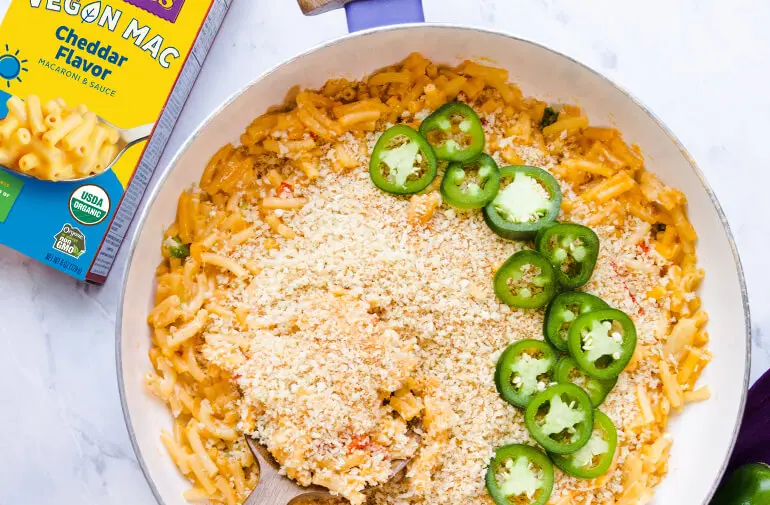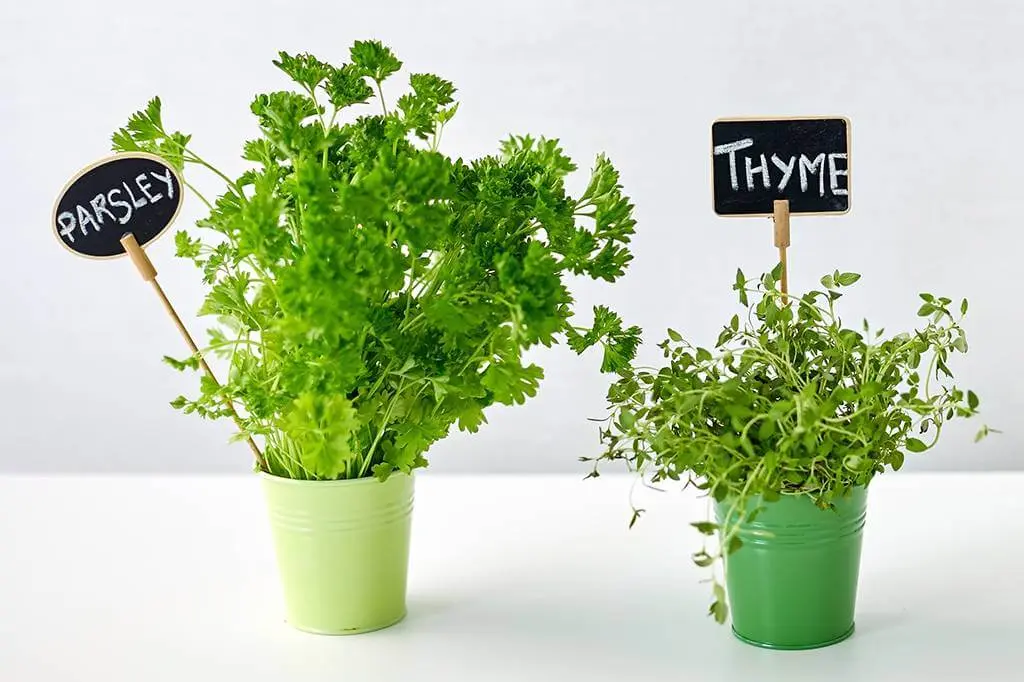
DIY Indoor Herb Garden
Here’s a sweet way to keep gardening throughout the colder months — plant an indoor herb garden! Many herbs flourish inside and caring for them is super easy and fun. In fact, planting, watering, and cutting herbs is a great activity for kids, and it helps them learn about how food is grown. It’s so satisfying to eat herbs grown in your very own garden. (Spoiler alert: herbs are great on Annie’s Mac & Cheese!)
Don’t worry: if you don’t know how to grow herbs, we’ve put together a simple guide to help get you started, from prepping the planters to keeping your plants watered.
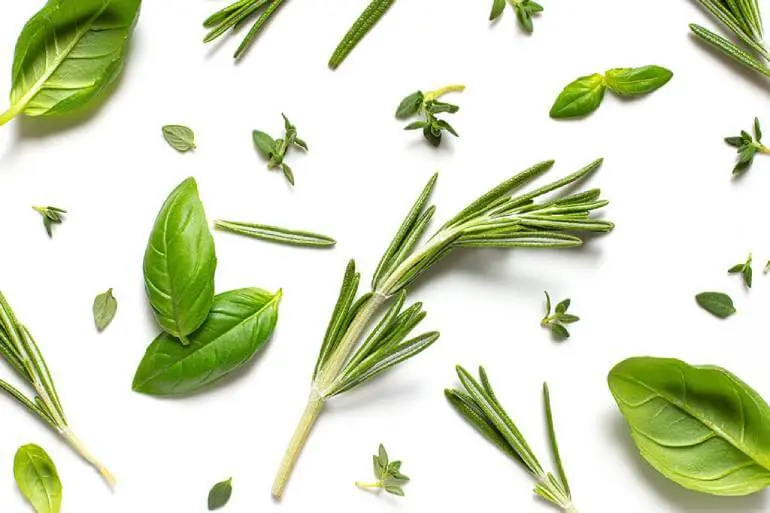
1. Choosing Your Herbs
When it comes to figuring out what herbs to plant, the key is to pick a few your family will enjoy eating — and that you’ll use for cooking. (The family cat might appreciate it if you plant some catnip, too.)
For inspiration, here’s a list of herbs that thrive indoors:
- Basil
- Bay laurel
- Catnip
- Chervil
- Chives
- Cilantro
- Dill
- Lemon balm
- Mint
- Oregano
- Parsley
- Rosemary
- Sage
- Spearmint
- Thyme
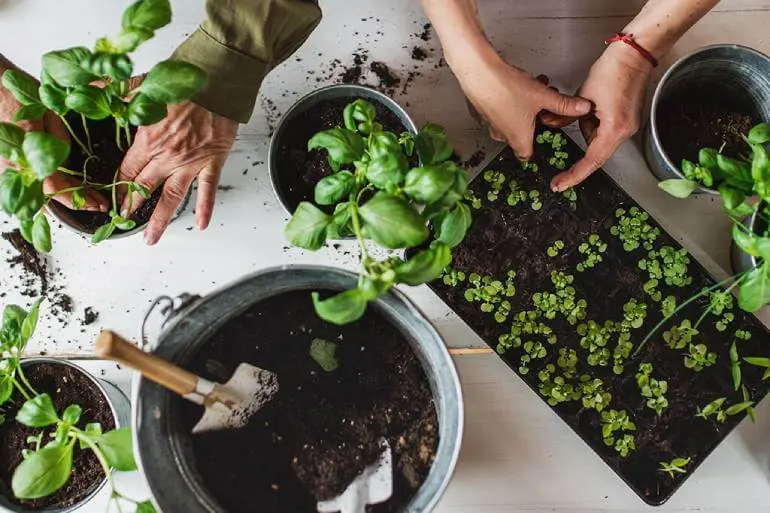
2. Planting Your Indoor Herb Garden
Planting indoor herbs is simple, but we do have a few tips for you.
- Choose a pot or multiple pots that fit your space and have good drainage holes and pans. Soggy soil, especially in cooler temps, will make your herbs unhappy — they may rot or turn yellow.
- Line your pots with garden cloth or a similar barrier. This will keep the dirt from running out of the drainage holes while watering. If you don’t have garden cloth, a coffee filter works great!
- Use a nice, loose soil that drains well. This will help keep those roots happy. We like a soil blend that includes compost for nutrients.
Fill the container with multiple plantings. Herbs grow vertically, for the most part, so go ahead and pack a bunch into your pot. Perennial herbs are easier to grow from young plants. Note: If you decide to start from seeds, make sure you wet the seeds before planting. Read the seed packet to see how far apart and deep to plant them.
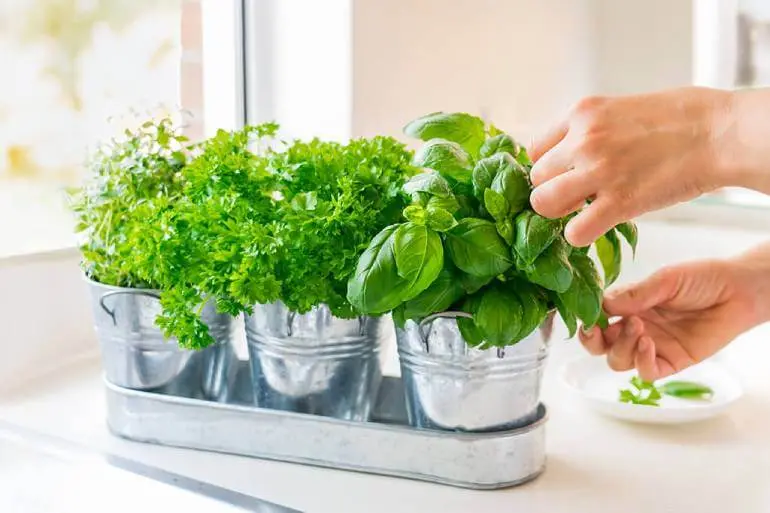
3. Taking Care of Your Herbs
Just like us, herbs love sunshine! You’ll want to place your herb containers somewhere in the house where they’ll get lots of it — think southern exposure and about 4 to 5 hours of direct light. If you can, rotate them every now and then so they get consistent light on all their leaves.
How often should you water? It will vary, depending on the amount of sunlight they get and the temperature in your house. The easiest way to tell if they’re thirsty is by checking their soil: if the top 1 or 2 inches is dry, it’s time to water.
You can pour water on the top of the soil or into the pan underneath your herbs. Let the plant soak up the water for about 15 minutes and then discard any excess water that’s in the pan. This will protect your roots from rot and gnats.
4. Eating Your Herbs
Now for the best part: eating your herbs! Sometimes, little herb plants can start to feel like pets, and your kiddos might be wary of picking their leaves. They’ll be so delighted to learn that harvesting is actually great for the plants, and taking regular cuttings will encourage the herbs to grow.
All those tasty herbs will be great with your favorite Annie’s recipes. Try them with:
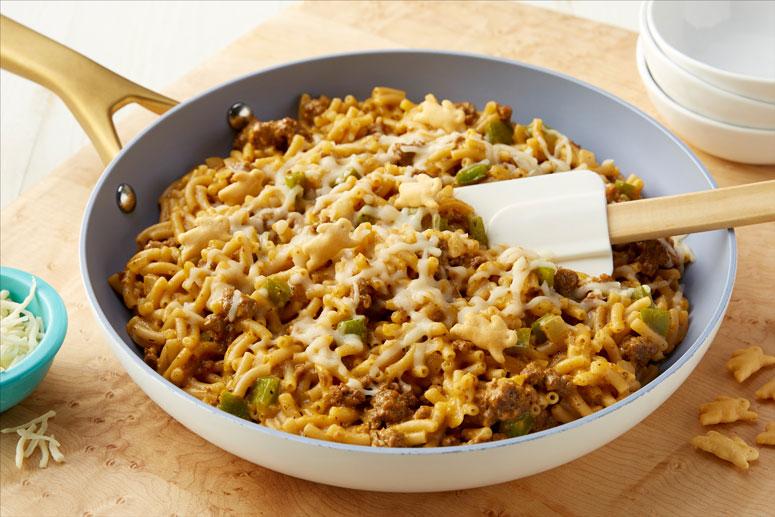
Philly Cheesesteak Mac & Cheese
View recipe here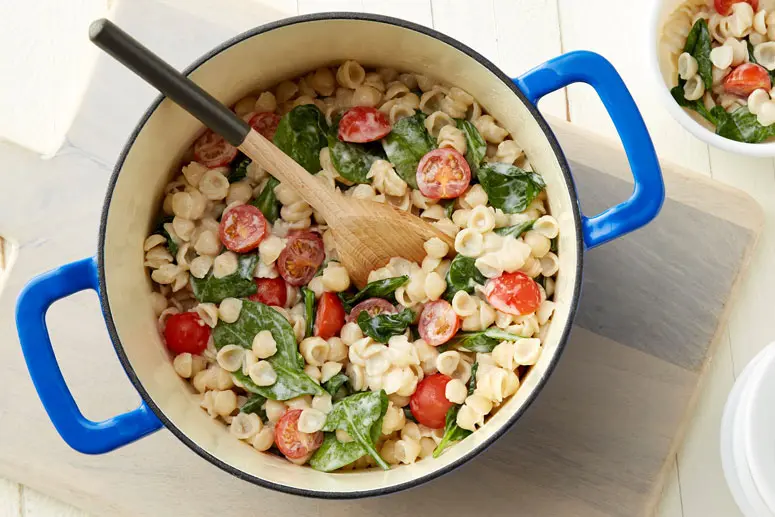
Spinach and Tomato Shells & Cheese
View recipe here
Barbecue Pork Mac & Cheese Cup
View recipe here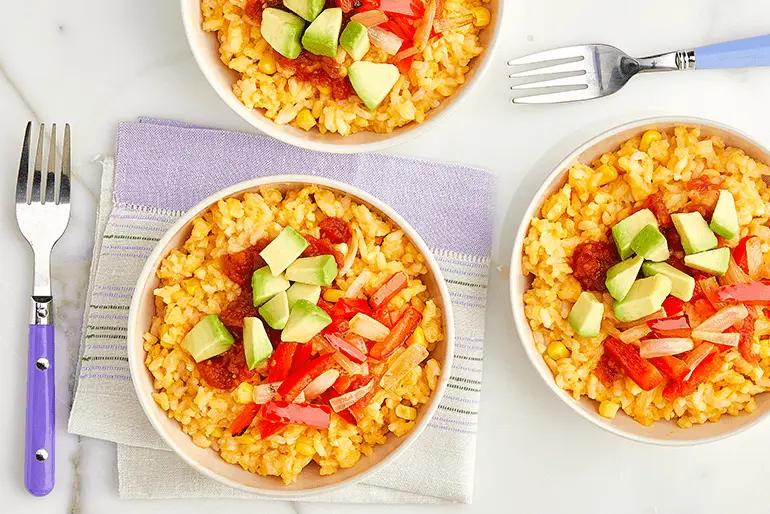
Vegan Fajita Rice Bowls
View recipe here